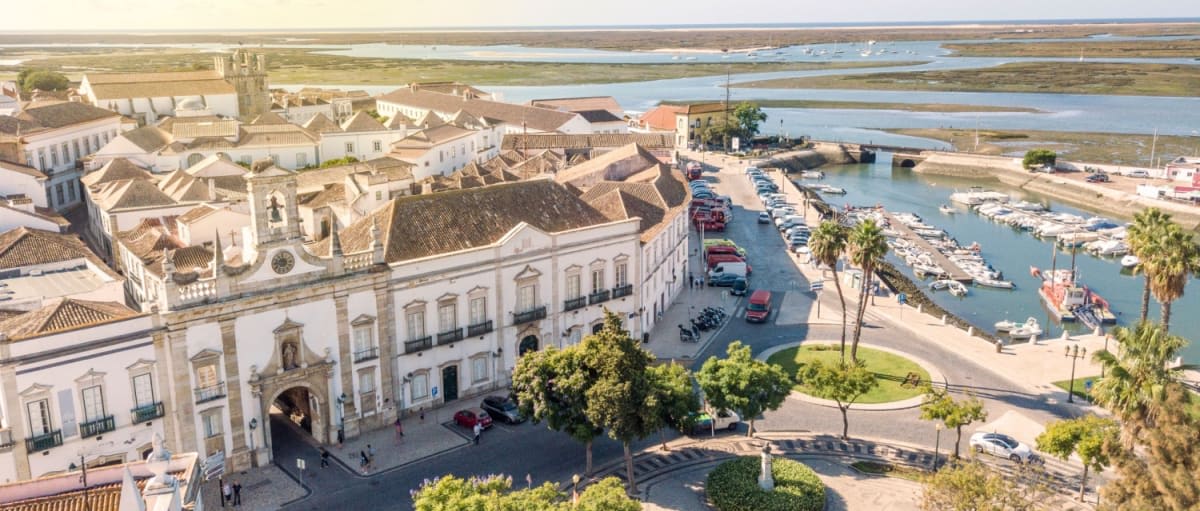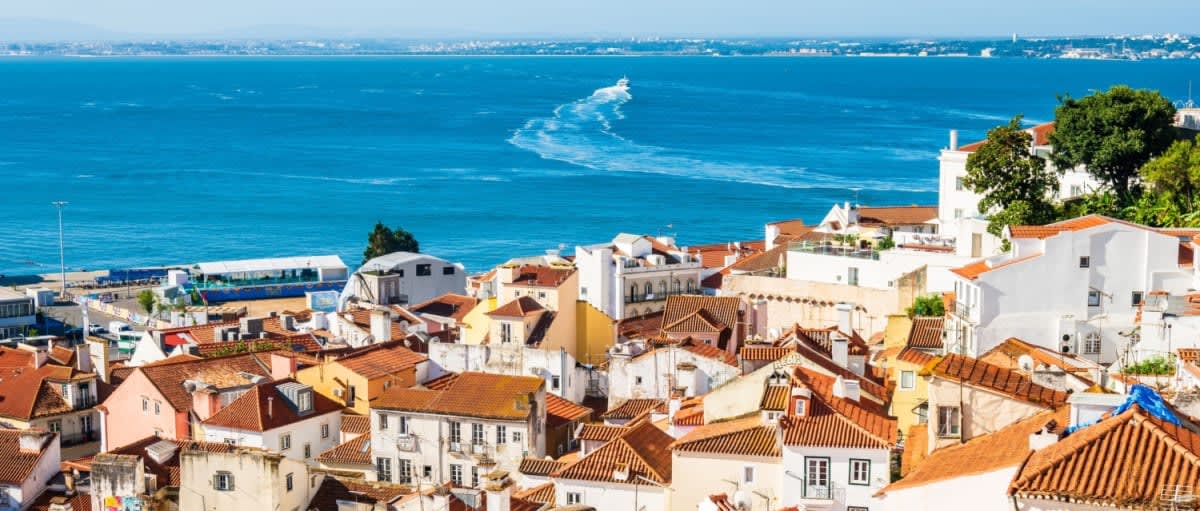Portugal continues to attract international property buyers with its affordable lifestyle, mild climate and world-class beaches. Whether you’re searching for a home in the Algarve, a flat in Lisbon or a countryside retreat, financing your purchase with a local mortgage is often a sensible route – especially with interest rates stabilising in Europe as of 2025.
For non-residents, securing a mortgage in Portugal is achievable, but navigating the local banking systems, documentation requirements and language barriers can be daunting. We’ll walk you through the steps of obtaining a mortgage as a foreign buyer, highlight key tips to boost your chances and clarify what to expect along the way.
Contents

Can non-residents get a mortgage in Portugal?
Yes – non-residents can access mortgages from Portuguese banks and lenders. While eligibility criteria may differ slightly between institutions, the process is well-established and open to buyers from the UK, USA, EU and beyond. Most Portuguese lenders offer international mortgages primarily for second homes or investment properties and will assess your ability to repay based on income, age and credit history.
Typically, non-resident borrowers can access up to 70% of the property value (loan-to-value), though this may be lower depending on the applicant’s profile. Lenders apply stricter income and affordability requirements to non-residents, usually capping monthly mortgage repayments at 30–35% of your net monthly income.
Age is another consideration. Usually, banks require your fully repay the mortgage by the age of 75–80. This means older applicants may need to opt for shorter loan terms or place a larger deposit.
While it’s possible to apply directly through Portuguese banks, using a broker with experience working with overseas buyers can greatly speed up the process and reduce the chance of error. Banks will typically require translated and notarised documents, and many prefer dealing with applicants via intermediaries who can present suitable applications upfront.
For a detailed guide on the rest of the process, claim your free copy of our Portugal buying guide:
Download the Portugal Buying Guide
Types of Portuguese mortgages
There are three main types of mortgage available in Portugal, each suited to different financial needs and buying strategies:
- Fixed-rate mortgages: These offer a stable interest rate for the duration of the repayment period or part of it (typically 10 to 30 years). Buyers favour this option for certainty in monthly payments.
- Variable-rate mortgages: These are linked to the 12-month Euribor rate, with interest updated annually or semi-annually. While the initial rate is often lower than fixed, future payments can rise or fall based on market movements.
- Mixed-rate mortgages: These offer a fixed rate for the first “honeymoon” period (usually 5–10 years), followed by a variable rate. This combination offers initial stability with the potential for future rate reductions or increases.
In Portugal, the typical mortgage term for a non-resident can be between 20 and 30 years, though some banks may allow up to 35 years, depending on the age of the applicant at maturity. Portuguese lenders prefer longer terms to keep monthly payments low and manageable.
A registered mortgage adviser can provide detailed comparisons between these loan types and recommend options that match your risk profile, budget and future plans. It’s critical to weigh the benefits and long-term implications of each mortgage structure before committing.
How much can you borrow in Portugal?
As a non-resident buying in Portugal, you’re likely eligible to borrow 60–70% of a property’s market value through a local mortgage. By contrast, Portuguese residents can often borrow up to 90% due to their local income and tax profile. If you’re self-employed or rely on foreign income in currencies such as GBP or USD, the bank may lower its offer to around 50–60%.
Most lenders expect you to pay a minimum deposit of 30–40%, and this must come from your own funds – they don’t usually accept personal loans or borrowing from family unless clearly documented. The deposit relates to the bank’s valuation of the property, which may differ from the purchase price. This means that even if you negotiate a bargain, the bank may only finance a percentage of their internal valuation.
Buyers also need to factor in an additional 8–10% of the purchase price for fees and taxes – including property transfer tax (IMT), notary fees and stamp duty. These costs are not included in the mortgage loan and must be prepared separately. A typical buyer must show they have enough savings to cover both the deposit and the upfront cost of purchase.
In practice, banks give greater flexibility to buyers with a stronger financial profile, lower debt exposure and a steady income stream. Applying for a higher mortgage amount than you ultimately plan to use can also make the process smoother, giving you room to adjust without restarting the paperwork.
What documents do you need?
Gathering and preparing the right documents is key to a smooth mortgage application in Portugal. All documents will need to be in Portuguese or officially translated and notarised. Expect banks to request the following:
- Copy of passport or national ID
- Your Portuguese tax number (NIF – Número de Identificação Fiscal)
- Proof of income: your last three payslips or an accountant-certified income report if you’re self-employed
- Three to six months of recent bank statements
- Employer reference (if applicable)
- Latest mortgage statement (if you own other properties)
- Proof of savings, investments or other assets
- Utility bill or proof of address from current country of residence
- Preliminary Sale and Purchase Agreement (Contrato de Promessa de Compra e Venda), or property details
If you’re self-employed, banks may ask for two to three years’ tax returns, a business activity breakdown and sometimes a profit & loss statement signed by your certified accountant.
To avoid delays, start compiling these documents early. Make sure to also check any additional requirements from your bank or broker, particularly when applying from outside the EU, as rules can differ slightly.
The step-by-step mortgage process
The process of securing a mortgage in Portugal as a non-resident usually follows these steps:
- Initial assessment: Speak to a mortgage broker or bank to assess your borrowing capacity and to obtain an estimate of how much you can afford.
- Formal quote (Simulation): Based on your documents and income, the bank will issue a mortgage simulation with the loan terms, interest rate, and repayment schedule. Some banks may charge a small fee for this step.
- Application submission: You’ll complete a formal application and submit your supporting documents. Most banks now allow this digitally, especially for overseas applicants.
- Approval in principle: If everything is in order, the bank will issue pre-approval, subject to a property valuation.
- Property valuation: The bank’s appointed surveyor will inspect and value the property. If it’s in line with or higher than the purchase price, the process moves forward.
- Final offer: You will receive the confirmed terms of the mortgage agreement. Read carefully and clarify any fees or insurance requirements before signing.
- Completion and funds release: On completion day, the mortgage funds are transferred directly to the seller at the notary’s office. At the same time, you’ll sign the property and loan deeds – your purchase is now complete.
The total time from application to mortgage drawdown is typically six weeks to three months. Delays can occur if there are issues with valuations, documentation or legal checks.
Should you use a mortgage broker?
Working with a seasoned mortgage broker can be particularly helpful for international buyers in Portugal. Brokers understand the preferences and policies of each lender, making them well-placed to match you with suitable banks and avoid submitting incomplete or unsuitable applications.
Here are some advantages of using a broker:
- They provide tailored advice based on your budget, nationality and long-term plans
- They often have access to deals and banks not open to walk-in customers
- They can manage communication with the lender in Portuguese
- They guide you through document gathering and translation requirements
Broker fees vary between 0.5–1% of the loan amount and are clearly set out in advance. Many firms offer an initial consultation free of charge, during which you can review your eligibility and ask questions.
If you value personal support, help with negotiation and faster communication across languages, a broker is highly recommended.
How to get the best mortgage rate
Securing a competitive interest rate in Portugal doesn’t happen automatically – it requires preparation and sometimes negotiation. Interest rates in 2025 remain closely tied to the Euribor rate, which has been moderately stable overall but is influenced by wider economic policy shifts across the EU.
Here are some key steps to improve your chances:
- Improve your financial profile: Reduce existing debt and keep credit card balances low. Lenders look for low debt-to-income ratios.
- Apply early: Start the process before viewing trips or formal offers. Having a mortgage pre-approved improves your buying power and negotiation potential.
- Increase your deposit: Banks often offer better terms if you contribute more than the minimum required.
- Use a currency specialist: Forward contracts allow you to lock in favourable exchange rates ahead of time and avoid last-minute losses due to currency swings.
- Compare multiple banks: Don’t accept the first offer. Request formal quotes from at least two lenders or work with a broker who can do this for you.
The importance of a currency specialist can’t be overestimated, shits in exchange rates can dramatically impact your buying power overseas. Speak to our partners Smart Currency Exchange to find out more about taking control of the risk.
Many buyers lose out by simply accepting their home bank’s offer or by failing to shop around. With thousands at stake over the life of the loan, taking time to compare offers is well worth the effort.
Start your journey with expert advice
If you’re considering buying a home in Portugal, understanding your mortgage options early in the process is essential. Speak to one of our trusted, bilingual mortgage partners to receive a clear outline of your eligibility and borrowing options.
Book your free consultation today and take the first confident step towards owning your Portuguese home.
Understanding how to get a mortgage in Portugal as an international buyer is a key part of your property journey. Once you’ve explored your loan options, the next step is deciding where to buy property in Portugal. For a complete overview of the buying process, from mortgages to legal checks, visit our hub on how to buy property in Portugal. These expert guides will support you from planning to completion.
Frequently asked questions about getting a mortgage in Portugal
Yes. Portuguese banks offer mortgages to international buyers, typically financing up to 70% of the property’s value, depending on your income and nationality.
Documents usually include your passport, proof of income, bank statements, tax number (NIF), proof of address, and details about the property. All documents must be translated and notarised if not in Portuguese.
From initial assessment to funds being released, the mortgage process typically takes 6–12 weeks. Delays can occur if documents are missing or property valuations are lower than expected.
No, but it’s highly recommended. Brokers can match you with suitable banks, help negotiate better terms, and handle language and documentation issues.
Rates depend on the Euribor benchmark and your financial profile. In 2025, typical mortgage rates range from 3% to 5%, with better terms for those offering larger deposits or fixed-rate products.









